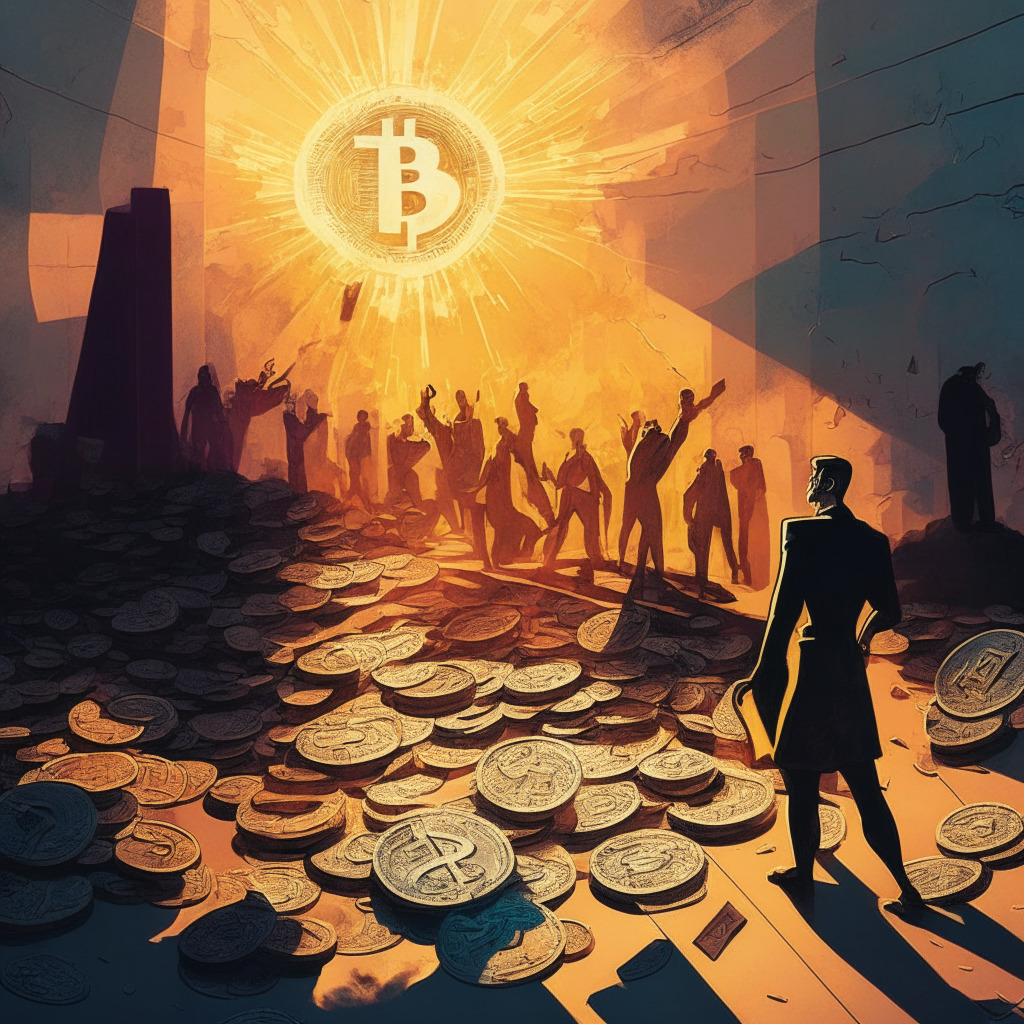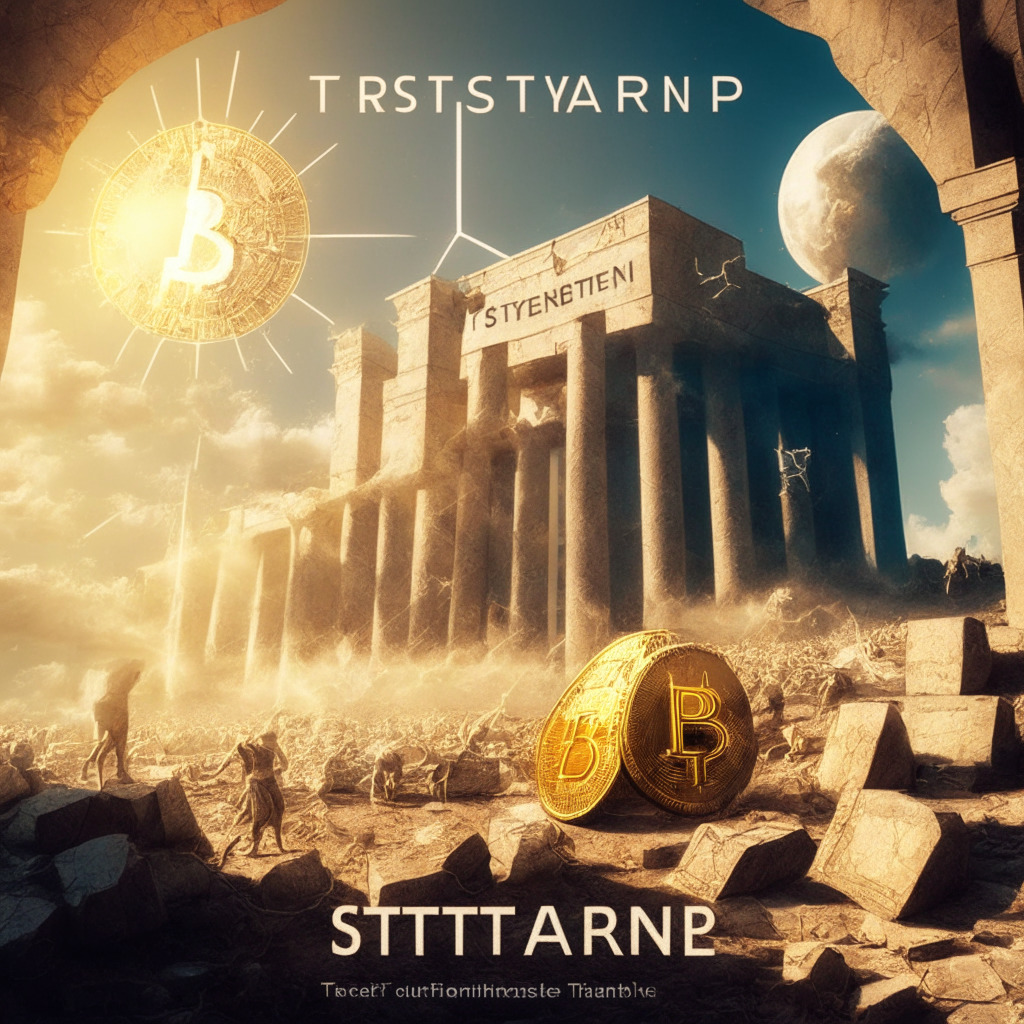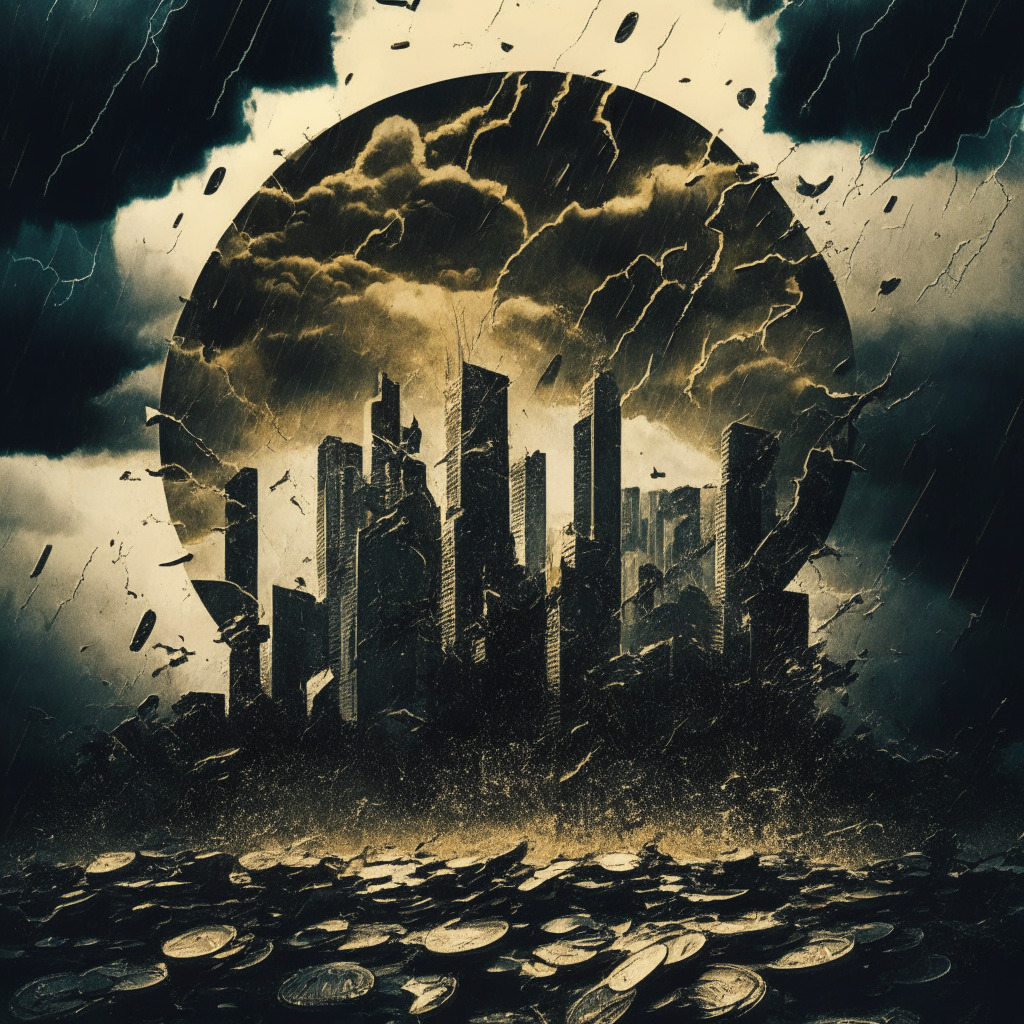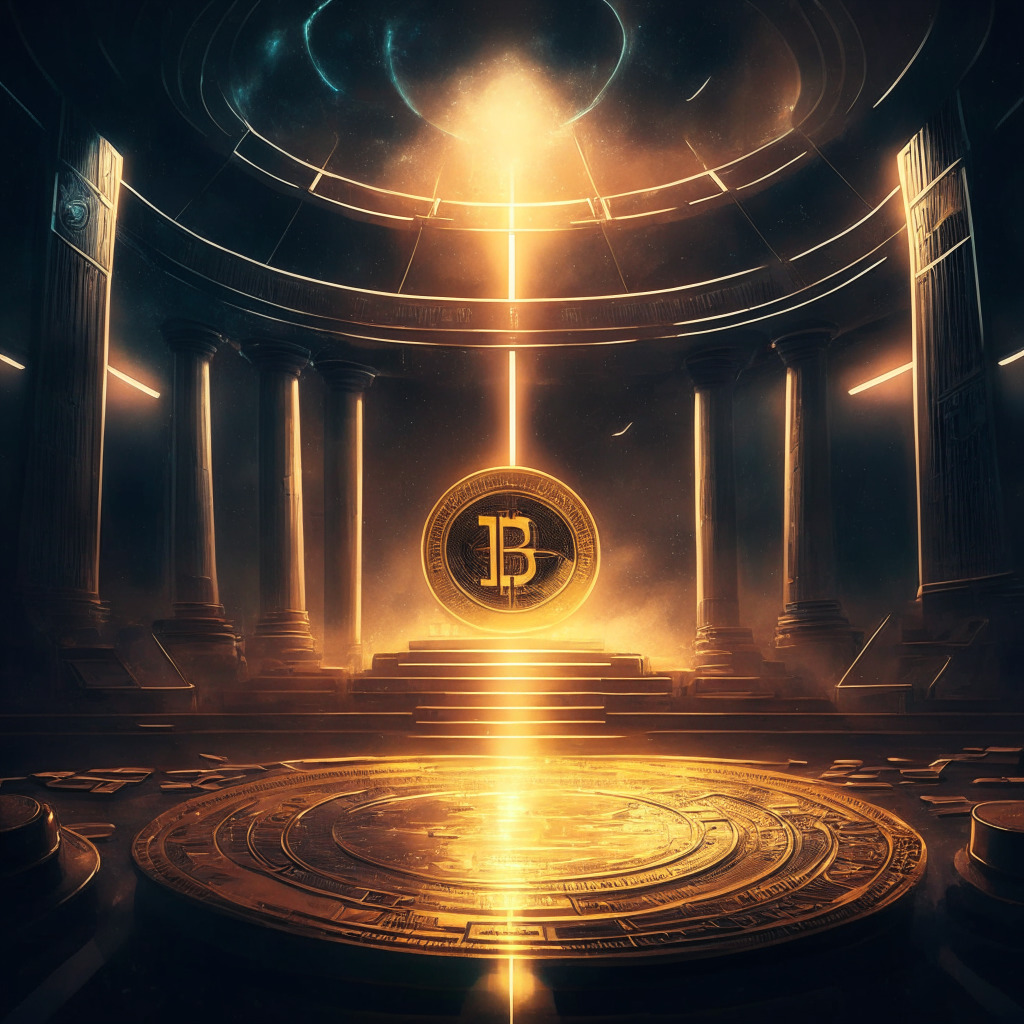Global leaders are creating universal rules for the crypto sector; however, G-7 advanced economies favor allowing and regulating stablecoins, while emerging G-20 economies voice concerns for stricter restrictions. This disagreement could hinder global acceptance of stablecoin norms and fragment unified oversight.
Search Results for: TerraUSD
Stablecoins: A Solution to Crypto’s Banking Crisis Amid Operation Chokepoint 2.0
Stablecoins may counter the impact of Operation Chokepoint on the crypto sector, providing a solution to the US banking crisis facing crypto companies. Leveraging stablecoins can minimize bank dependency and establish an autonomous parallel financial system, despite potential risks and regulatory challenges.
Tether’s Record Market Cap: Resilience, Transparency, and Crypto Mining Ventures
Tether’s market cap reaches a new high of $83.2 billion, recovering from a $20 billion loss last year. Its resilience, industry-leading transparency, and recent ventures into crypto mining and sustainable practices contribute to its regained trust and success in the cryptocurrency landscape.
Montenegro Court Reversal: Terraform Labs’ Co-Founder Bail Denied Amid Crypto Controversy
A court in Montenegro repealed Terraform Labs co-founder Do Kwon’s release on bail, sparking controversy as allegations of forgery persist. The downfall of TerraUSD, their algorithmic stablecoin, highlights the importance of regulatory measures in the rapidly evolving crypto and stablecoin markets for global financial stability.
Terra Labs Legal Tangle: Crypto’s Lessons on Regulations and Market Stability
The bail deal for Terra Labs co-founder Do Kwon is now in question, as Montenegro’s State Prosecutor’s Office files an appellation against it. Kwon faces extradition to South Korea and criminal charges in the US, emphasizing the importance of regulatory adherence and transparency for crypto enthusiasts.
Terra Classic Community Approves Game-Changing Proposals: The Impact on LUNC and Staking
The Terra Classic community approved four proposals aimed at increasing burn tax, LUNC burn, and staking, which could lead to significant network changes. These decisions follow LUNC’s price drop and include raising the LUNC burn tax to 0.5%, incentivizing staking, whitelisting Dapp contracts, and increasing community pool funds.
Crypto Bank Runs: The Role of Whales and Risky Investments in Market Turmoil
A recent study found that the 2022 crypto bank runs were majorly triggered by whale account holders withdrawing large portions of their funds. Crypto platforms’ run risks arose from allowing unrestricted withdrawals while using funds for risky, illiquid investments, highlighting policy concerns.
Crypto Crisis 2022: High-Yield Risks, Massive Outflows, and the Need for Safeguards
The recent crypto crisis of 2022, triggered by the collapse of TerraUSD, followed by the downfall of Three Arrow Capital and FTX, exposed the dangers of relying on high-yield investments without proper safeguards. The crisis led to significant outflows of customer funds from major crypto lenders, while highlighting the need for enhanced security and risk mitigation in the crypto sphere.
Terra Luna Classic’s Race to $1: Factoring in Legal Allegations and Market Influencers
Terra Luna Classic (LUNC) experiences a 10% rebound, but allegations against Jump Trading and Terraform Labs might affect its price. The LUNC’s future depends on lawsuit outcomes, market sentiment, and the overall state of the cryptocurrency world.
LUNC Burn Tax Debate: Influencers Push for 1.2% Amid Binance Warnings and Falling Prices
The Terra Luna Classic community has agreed to raise the LUNC burn tax after the token’s price fell significantly. Proposal 11515 “Increase the Burn tax to 0.5%” is currently up for voting, with 77% of votes in favor so far. Major validators support the increase, which could lead to a rise in Binance LUNC burns and LUNC burn rate.
Cryptocurrency’s Relationship with Macroeconomic Factors: Pros, Cons, and Future Impacts
Cryptocurrency markets remain responsive to macroeconomic changes despite being driven by technology and market sentiment, according to an S&P Global report. As interest from institutional investors grows, the relationship between crypto markets and macroeconomic indicators may strengthen, heightening contagion risks between traditional and crypto markets while also raising important questions about their future roles in global economies.
LUNA Crash Anniversary: Reflecting on Lessons Learned and Importance of User Protection
On the anniversary of the LUNA crash, Binance CEO Changpeng Zhao reflects on the lessons learned, emphasizing transparency and user protection in the crypto market. The crash highlighted the importance of a strategic investment approach and the ongoing concerns surrounding liquidity, interoperability, and user protection in the cryptocurrency sphere.
Frozen Assets of Crypto CEO: A Call for Stronger Regulation or a Barrier to Innovation?
Do Kwon, co-founder and former CEO of Terraform Labs, has had his personal assets worth $176 million frozen as part of an ongoing criminal investigation. His arrest and subsequent events involving Terra Luna’s stablecoin collapse emphasize the importance of stronger regulatory frameworks to ensure stability and longevity in the rapidly growing crypto market.
Jane Street & Jump Crypto Scale Back Due to Regulatory Pressure: A Closer Look at the Conflict
Jane Street Group and Jump Crypto are scaling back their digital asset trading in the US due to increasing regulatory pressure. Despite the cutbacks, both firms remain engaged in crypto markets on a smaller scale. The decision comes amid heightened scrutiny of the digital asset industry following the collapse of notable companies like FTX and TerraUSD stablecoin.
Extradition Battle Over Terra Co-Founder: Seeking Justice or Legal Complexity?
South Korean authorities seek extradition of Terraform Labs co-founder Do Kwon for alleged crimes in TerraUSD and LUNA token collapses. Montenegrin decision weighs factors like severity, location, and time, while considering the rights and interests of multiple parties.
NYDFS Enhanced Powers: Balancing Crypto Innovation & Consumer Protection
The New York Department of Financial Services may gain increased authority to regulate digital assets and stronger enforcement powers for the Attorney General, according to a proposed bill. If passed, it could require exchanges to reimburse customers for fraud and bring about more stringent regulations to ensure consumer protection, but potentially hinder innovation and growth within the crypto ecosystem.
crvUSD Launch: A New Era for Algorithmic Stablecoins or Another Failure in the Making?
The decentralized finance world celebrates the successful launch of CurveDAO’s algorithmic stablecoin, crvUSD, with over $22 million minted. Curve’s crvUSD aims to avoid previous pitfalls experienced by other algorithmic stablecoins, potentially reshaping the DeFi ecosystem if successful.
















